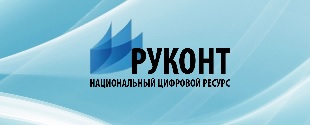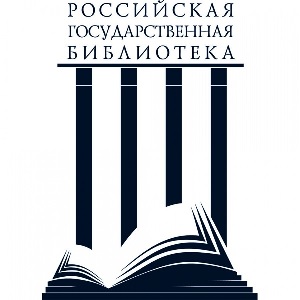ИНСТРУМЕНТЫ СУБЪЕКТОВ ТЕНЕВОЙ ЭКОНОМИКИ ПО ОБЕСПЕЧЕНИЮ ЭКОНО-МИЧЕСКОЙ БЕЗОПАСНОСТИ ПОСРЕДСТВОМ ЛАТЕНТИЗАЦИИ СВОЕЙ ДЕЯТЕЛЬНОСТИ
Аннотация
В статье теневая экономика позиционируется в качестве объекта системы экономической безопасности. При таком подходе появляются задачи, требующие самостоятельного решения. А именно определение угроз экономической безопасности теневой экономики, их источников, показателей их оценки, субъектов и инструментов обеспечения. Субъекты теневой экономики рассматриваются в качестве субъектов, обеспечивающих свою экономическую безопасность. Представлены целевые ориентиры обеспечения экономической безопасности субъектами теневой экономики: снижение риска угрозы выявления теневой деятельности; снижение риска применения санкции и минимизация ее размера при выявлении теневой деятельности; снижение риска незащищенности прав собственности субъектов теневой экономики; обеспечение устойчивого спроса на продукцию (товары, работы, услуги) субъектов теневой экономики. Предложена классификация и характеристика инструментов латентизации экономической деятельности как факторы обеспечения экономической безопасности субъектов теневой экономики. В числе таких инструментов выделены: инструменты мимикрирования, инструменты непосредственного сокрытия, инструменты миграции, инструменты минимизации риска разглашения информации, инструменты минимизации риска выявления теневой деятельности субъектами, ответственными за выявление теневой экономики.
Литература
Saninsky R.A. The shadow economy as a threat to national and international economic security: current state, directions of counteraction. Legal science and practice: Bulletin of the Nizhny Novgorod Academy of the Ministry of Internal Affairs of Russia. 2020. N 3(51). P. 267-269. EDN DIHHDH. (in Russian).
Cheglakova S.G., Voronkova A.V. Shadow economy as a threat to the state economic security. Economic environment. 2020. N 4(34). P. 51-58. DOI: 10.36683/2306-1758/2020.04/51-58. EDN JBYNCX. (in Russian).
Kupreschenko N.P., Belomyltseva A.A. Shadow economy as a threat to economic security. Forum. Series: Humanities and Economics. 2021. N 2(22). P. 212-216. EDN TLHIEF. (in Russian).
Grachev A.V., Sikorskaya L.V. Analysis of threats to the economic security of shadow economy entities. The economy under guard. 2022. N 3(22). P. 9-15. (in Russian).
Grachev A.V. Threats to the economic security of shadow economy entities. Materials of the international scientific and practical conference «Economic security of the individual, society, and the state: problems and ways of ensuring». St. Petersburg: St. Petersburg University of the Ministry of Internal Affairs of the Russian Federation. 2022. P. 28-35. (in Russian).
Litvinenko A.N., Grachev A.V. Organizational and legal methods of countering criminalization of the economy and corruption. Bulletin of the Moscow University of the Ministry of Internal Affairs of Russia. 2022. N 2. P. 279-283. (in Russian).
Tolkacheva O.P. Economic and statistical analysis of the labor market impact on the country economic security. Ivecofin. 2023. N 3(57). P. 59-69. DOI: 10.6060/ivecofin.2023573.654. EDN QTYLMZ. (in Russian).
Tolkacheva O.P., Sikorskaya L.V. Analysis of the impact of administrative penalties on the misuse of budgetary funds in the system of ensuring economic security. Ivecofin. 2023. N 4(58). P. 15-23. DOI: 10.6060/ivecofin.2023584.660. EDN RIRRYJ. (in Russian).
Grachev A.V., Sikorskaya L.V. The relationship between the processes of digitalization of the economy and the economic security of the country. Ivecofin. 2023. N 3(57). P. 35-44. DOI: 10.6060/ivecofin.2023573.652. EDN XLHZEE. (in Russian).
Litvinenko A.N., Grachev A.V., Vinogradova Yu.A. Analysis of the influence of the shadow economy on the country's economic security indicators. Russian Journal of Management. 2023. Vol. 11. N 2. P. 45-52. DOI: 10.29039/2409-6024-2023-11-2-45-52. EDN CQWPWC. (in Russian).
Dashin A.V., Usenko A.S. Methods for preparing, performing and hidden illegal participation in entrepreneurial activity. Bulletin of the Samara Law Institute. 2020. N 5 (41). Р. 35-40. (in Russian).
Puchnin A.V. The situation, methods of preparation, commission and concealment of traces of economic crimes related to official activity. Voronezh forensic readings. 2013. N 15. P. 239-248. (in Russian).
Volynsky A.F. On ways to counteract the investigation of economic crimes. Proceedings of Tula State University. Economic and legal sciences. 2013. N 3. P. 27-36. (in Russian).
Garmaev E.P. Illegal activity of lawyers in criminal proceedings. Irkutsk: IPKPR GP. 2005. 390 р. (in Russian).
Grachev A.V., Sikorskaya L.V., Vinogradova Yu.A. Assessment of counterpart reliability as a tool to ensure economic security of an economic subject. Ivecofin. 2022. N 4(54). P. 44-52. DOI: 10.6060/ivecofin.2022544.625. EDN EZCNPW. (in Russian).
Voenkova E.A. On the issue of the concept of "criminal migration". Materials of the International scientific and practical conference «Priority directions for the development of education and science». Cheboksary: Interactive Plus. 2017. P. 261-264. (in Russian).
Kadermyatova A.E., Ostanina Yu.A. Migration of taxpayers: concept, causes, consequences. Materials of the III International Scientific and Practical Conference «Scientific research and innovations». Saratov: Digital Science. 2021. P. 100-103. (in Russian).
Tsepenkova Ya.V. Problems of fictitious migration of legal entities in the Russian Federation. Materials of the XI International scientific and practical conference «Modern trends and innovations in science and production». Mezhdurechensk: KuzSTU named after T.F. Gorbachev. 2022. P. 2441-2445. (in Russian).
Borzunov S.A., Maltseva V.A. Fictitious migration of legal entities: modern legal aspects and ways to solve the problem. Materials of the International Scientific and Practical Conference «Priorities for the development of socio-humanitarian knowledge, economics and law: scientific discussion and experiments». Kislovodsk: Scientific Consultant. 2017. P. 45-50. (in Russian).
Zazhigalkin V.E. "Money mules" as an instrument of arrangement and carrying out of smuggling of controlled psychoactive substances using modern telecommunications resources. Drug control. 2018. N 3. P. 28-30. (in Russian).
Gordeev D. S. Legalization (laundering) of funds (using the example of "drops", "cashing out"). Materials of the international scientific and theoretical conference held within the framework of the I St. Petersburg International Youth Scientific Forum "Northern Palmyra: territory of possibilities" «Security of the individual, society and the state: theoretical and legal aspects». St. Petersburg: St. Petersburg University of the Ministry of Internal Affairs of the Russian Federation. 2022. P. 556-560. (in Russian).
Wainwright T. Narconomics: How to Run a Drug Cartel. St. Petersburg: Palmyra. 2018. 271 p. (in Russian).












